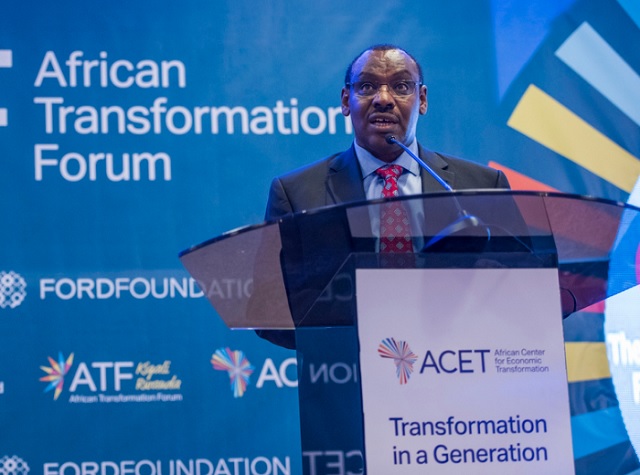
Rwanda’s Minister of Finance and Economic Planning, Claver Gatete, has been named Finance Minister of the Year in the Sub-Saharan category by Global Capital, an international news, opinion, and data service
Gatete’s honour was announced on Oct.04 together with winners from Latin America, Central and Eastern Europe, the Caribbean, and the Cayman Islands.
Gatete was one of two winners from the East African Community region as the Governor of the Central Bank of Kenya, Patrick Njoroge, was name Central Bank Governor of the Year 2016, Sub-Saharan Africa.
South Africa was named the Best Sovereign DMO, Sub-Saharan Africa 2016 and Cote d’Ivoire was named Best Infrastructure Investment 2016 Sub-Saharan Africa.
Global Capital noted that Gatete was awarded for his role in promptly putting in place policies that mitigated the adverse effects of strong headwinds that lashed Rwanda in the last 18 months.
Among the challenges noted was the mining industry, a key contributor of hard currency revenues, which suffered twin shocks in 2015 when international commodity prices and local production declined simultaneously. The Global Capital Report says these events sparked a slump in foreign exchange reserves and a spike in the current account deficit to 16.5%.
“For a small country with limited export opportunities this could have proved a severe setback,” the report notes, “The impact on the wider economy, however, has been largely mitigated by prompt action by policymakers.”
According to the report, Rwanda in June, secured a US$204 million standby credit facility from the International Monetary Fund (IMF) in return for commitments to tighten fiscal and monetary policy. These include a phased reduction in the budget deficit to 3.3% of GDP for the fiscal year ending in June 2018, primarily via cuts to capital expenditure, as well as an array of initiatives to boost domestic revenues.
A brief bio describes how the 54-year Gatete was born in Mbarara-Uganda and completed his undergraduate degree in 1991 and Master in 1993 at the University of British Columbia, Canada where he specialised in Agricultural Economics.
He worked in Canada for six years as an Economist between 1991 and 1997. He then moved to Rwanda and worked with United Nations Development Programme (UNDP) in Kigali between 1997 and 2000 as the National Economist.
From October 2001 to May 2005, he worked in the Office of the President as a Personal Representative of the President on NEPAD Steering Committee; Coordinator of the National African Peer Review Mechanism (APRM), member of the APR National Commission; and Member of the NEPAD’s African Partnership Forum (APF). He also served as Director General for social and economic Affairs and member of the Presidential Advisory Council between July 2000 and October 2003.
From November 2003 to September 2005, he was the Secretary General and Secretary to the Treasury in the Ministry of Finance and Economic Planning.
After an initial stint at the finance ministry, he served terms as Rwanda’s ambassador to the United Kingdom, Ireland, and Iceland before joining the central bank in 2009 as deputy governor. He was promoted to governor two years later and then tapped to head up the Finance and Economic Planning ministry in February 2013.
It was noted that in this role, Gatete has demonstrated an impressive commitment to prudent and proactive fiscal management as well as a talent for crafting agreements with international institutions.
In addition to the IMF deal, notable achievements this year have included securing $162m of funding from the African Development Bank and the Japan International Cooperation Agency for two major highway upgrades as well as smaller loans for water and sanitation projects.
Gatete also announced plans in May to develop a rail link to Tanzania and the Indian Ocean, seen as a crucial step in addressing Rwanda’s weak export base.
“Confidence in his ability to deliver on these commitments is reflected in buoyant growth forecasts for Rwanda,” the report says.
After a small dip to 6.3% this year, the IMF predicts GDP expansion to increase next year and remain on an upward trajectory for the rest of the decade, reaching 7.5% by 2020. That will make Rwanda one of the fastest growing economies in both sub Saharan Africa and the broader emerging markets universe.
Moody’s notes that the positive outlook for Rwanda is anchored by a high competitiveness rating and an open business environment.
“Rwanda is among the strongest performers with respect to institutional strength in sub-Saharan Africa as measured by worldwide governance indicators, with a positive track record of policy implementation and reforms,” analysts said in a recent ratings report.
****
editor@independent.co.ug
 The Independent Uganda: You get the Truth we Pay the Price
The Independent Uganda: You get the Truth we Pay the Price



